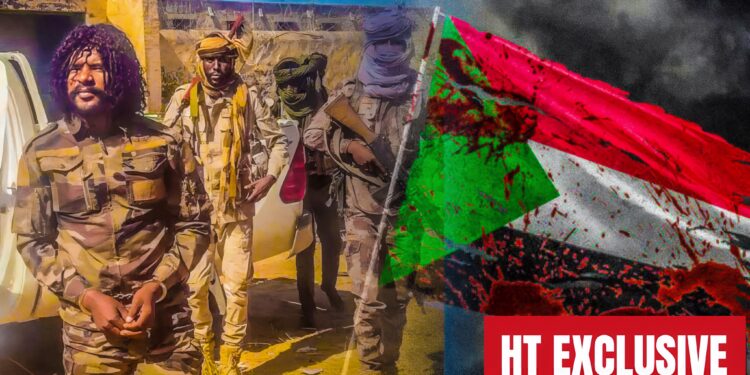By Emmanuel Nduka Obisue
The Rapid Support Forces (RSF) in Sudan say they have arrested fighters allegedly involved in summary executions in the recently captured city of El-Fasher, a move that has drawn both cautious optimism and deep skepticism among observers and human rights advocates.
A video shared on the RSF’s Telegram channel, and seen by Heritage Times HT, shows a fighter identified as Abu Lulu, who had earlier appeared in TikTok videos apparently committing summary executions, being placed behind bars in what the group claimed was a prison in North Darfur.
The footage also features an unnamed RSF officer stating that the arrest was carried out “in accordance with the instructions of RSF Commander General Mohamed Hamdan Dagalo, also known as Hemedti,” describing the process as “disciplined and professional”.
But as the footage made rounds online, questions emerged: is Hemedti’s arrest order a genuine attempt to rein in his fighters and demonstrate accountability, or a calculated move to polish the RSF’s battered image amid international outrage over alleged war crimes?
Heritage Times HT reports that when the RSF seized El-Fasher, the capital of North Darfur, on Sunday after more than 500 days of siege, eyewitnesses reported widespread atrocities. Hundreds of civilians were reportedly killed in ethnically targeted attacks, with satellite images and survivor testimonies painting a grim picture of mass executions and forced displacement.
The United Nations’ Emergency Relief Coordinator told the Security Council that there were “credible reports of widespread executions” as civilians tried to flee the city. “The Sudan crisis is, at its core, a failure of protection,” the official said. “Atrocities are committed with unashamed expectation of impunity…the world has failed an entire generation”.
Over 36,000 people have reportedly fled El-Fasher since Sunday, with the UN migration agency warning of a “catastrophic humanitarian collapse”. Analysts examining satellite images have noted the RSF’s construction of an earthen wall encircling the city, effectively turning it into a “kill box” where fleeing residents have been shot.
More than 40,000 people have been killed and 14 million displaced since the conflict between the RSF and Sudanese Armed Forces erupted in April 2023. The fall of El-Fasher, the army’s last major stronghold in Darfur, has further deepened fears that Africa’s third-largest country could fracture, with the RSF controlling much of the west and the military holding the capital Khartoum and parts of the north and east.
Whether Hemedti’s move signals a genuine bid to enforce discipline or a public relations maneuver to appease global critics remains uncertain. For many Sudanese, it is difficult to trust that a force accused of mass atrocities can now claim to deliver justice. Yet, if the arrest is real and accountability follows, it may hint at internal fractures within the RSF and an acknowledgment that the era of impunity may be closing in.
For now, Sudan’s war grinds on, and the question lingers: is Hemedti’s arrest order the first step toward accountability, or just another act in a bloody performance for the world’s attention?



































